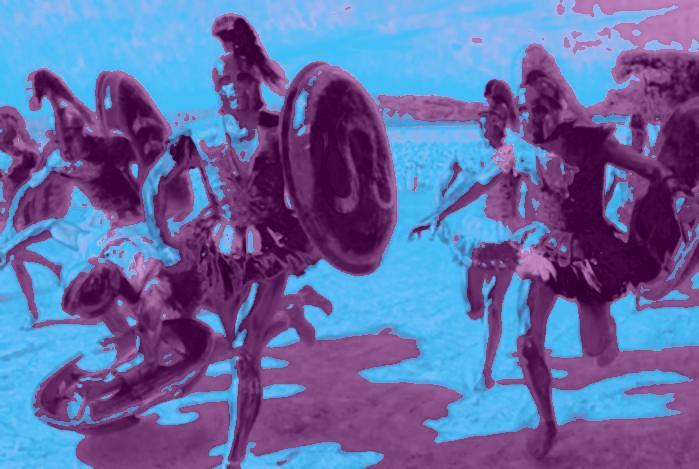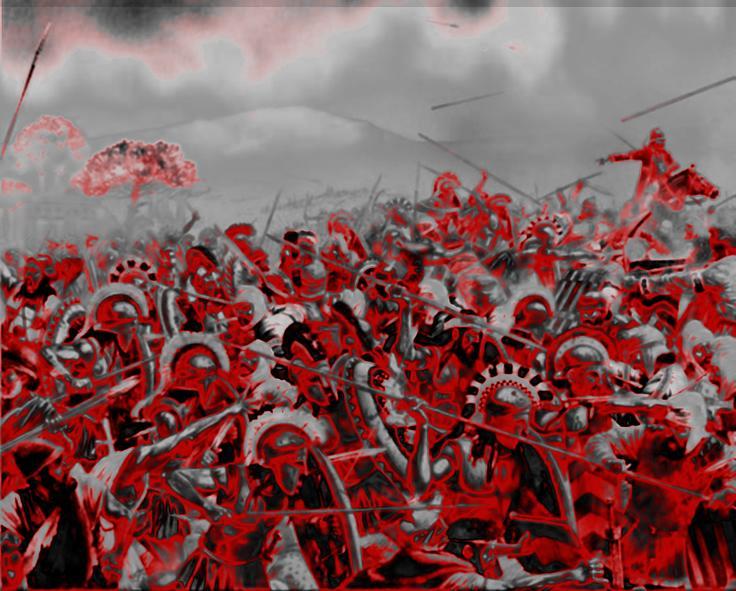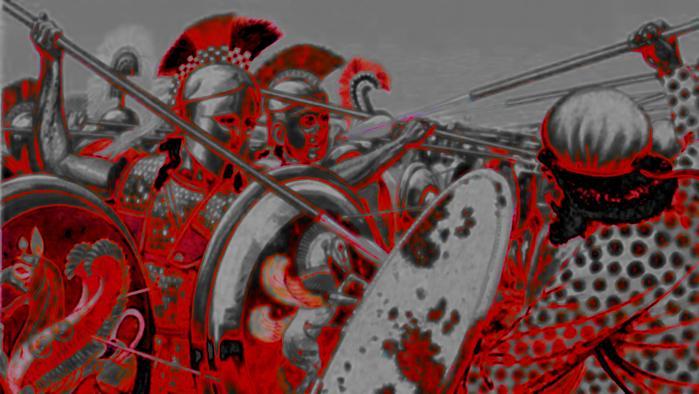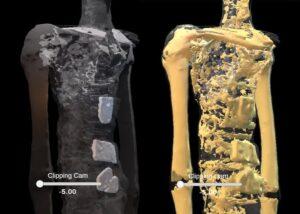The Unyielding Spirit: Xenophon’s Anabasis, The Battle of Cunaxa, and The Heroic Retreat of The Ten Thousand to The Gates of Ades
Thousands of years ago….
Authored by Xenophon via Anabasis
Across the vast expanse of the Mediterranean Sea, a relentless war raged through the annals of history. It was a war deeply rooted within the heart of Greece, where two mighty powers clashed in a battle that spanned centuries – the indomitable Spartans and the valorous Trojans. Yet, their struggle extended beyond their own borders, for they found themselves locked in an epic conflict against the formidable Persian Empire.
The fates of Sparta, Troy, and the entirety of Greece intertwined, forging a complex tapestry of both enmity and alliance. When the mighty Darius II, the revered king of the Persian Empire, breathed his last, his eldest son Artaxerxes ascended the throne, claiming his birthright.
However, the realm of power was not a tranquil domain, as Artaxerxes’ younger sibling, the ambitious Cyrus the Young, yearned for supremacy.
Thus, a tempestuous power struggle erupted, igniting the flames of the infamous Battle of Cunaxa.

In this pivotal clash, the forces of destiny converged, shaping the fates of empires and individuals alike. The battleground became a crucible of courage, where the might of Sparta, Troy, and Greece clashed with the relentless Persian Empire.
The echoes of their valorous deeds would resonate through the ages, forever etching their names in the annals of history.
Thus, the war across the Mediterranean Sea raged on, as the Spartans and Trojans fought not only for their own honor and glory but to safeguard the sovereignty of Greece.
Simultaneously, they confronted the daunting might of the Persian Empire, their adversaries and yet, in some twisted turn of fate, their unexpected allies.
The Battle of Cunaxa, born from a familial struggle for power, would forever be etched in the chronicles of this turbulent era, a testament to the indomitable spirit and unyielding resolve of those who dared to shape the destiny of nations.
Cunaxa
The Battle of Cunaxa unfolded in the year 401 BC, a clash between two brothers, Cyrus the Younger and Arsaces, who had ascended the Persian throne as Artaxerxes II in 404 BC. In his quest for power, Cyrus gathered a formidable army of Greek mercenaries, led by the renowned Spartan general Clearchus. This force consisted of 10,400 hoplites and 2,500 peltasts, and they confronted Artaxerxes at Cunaxa, situated on the left bank of the Euphrates River, approximately 70 kilometers north of Babylon.

As the battle commenced, Artaxerxes possessed around 150 scythed chariots, while Cyrus had only about 20 at his disposal. It is likely that a similar ratio of non-Greek troops existed on both sides. Artaxerxes, with his superior cavalry, held the advantage on the battlefield. The precise tactical outcome of the clash remains a topic of debate, but it proved to be a political and strategic victory for Arsaces as Cyrus met his demise during the conflict.
Following Cyrus’s death, Clearchus assumed command and skillfully led the retreat. However, treachery struck when he, along with his fellow generals, was unexpectedly captured by Tissaphernes. Betrayed and handed over to Artaxerxes, Clearchus faced a grim fate as he was executed. Stranded deep within enemy territory and with most of their leaders gone, the Greek army found itself in a precarious situation.

After the death of Cyrus the Younger in the Battle of Cunaxa, the Greek soldiers, known as the “Ten Thousand,” faced a difficult decision. They could either surrender their arms and become subjects of the Persian king or attempt to make their way back home.
Xenophon, a prominent Greek soldier, proposed the latter option, which resonated with the soldiers. They believed it was better to make a valiant effort to return home rather than submit to a foreign king.
Retreat

The Greeks elected Xenophon as their leader, but he agreed to take on the role only if each soldier pledged to obey him. He understood that unity was crucial for their success.
The soldiers not only swore their obedience but also promised not to quarrel among themselves.
With this united front, the army began its homeward march, traversing sandy deserts and rocky pathways.
As they encountered rivers too deep to ford, they followed the river’s course until finding a suitable spot to cross. Since they had no money or provisions, they had to procure food by seizing it along their route.
The Greeks faced natural obstacles and had to engage in constant skirmishes with pursuing Persian forces. Each morning, Xenophon arranged the soldiers in a square formation to repel the enemy’s attacks.

This pattern continued throughout their journey. After fighting until dusk, the Persians would retreat and set up camp at a distance. Instead of resting, Xenophon ordered the soldiers to march onward, often in the twilight until it became too dark or they were too tired to continue.
They would then have a hasty supper before resting on the hard ground under the stars.
At dawn, Xenophon would rouse them, and they would resume their march before the Persians awoke.
As the Greeks passed through mountainous gorges, they faced additional obstacles from local populations who attempted to impede their progress by rolling trees and rocks down upon them. Despite casualties, the army pushed forward.

After a grueling march of about a thousand miles, they finally caught sight of the sea, prompting a joyful outcry as they gazed upon the waters that bordered their homeland.

However, their troubles were not over.
As they lacked the funds to pay for passage, ship captains refused to take them on board. Instead, they were forced to continue trudging along the seashore.
Though they were no longer in immediate danger, fatigue and discontentment set in, causing them to forget their promise to obey Xenophon.
To acquire money for their journey back, they seized several small towns along the way.
Upon hearing news of a new expedition to free the Ionian cities from Persian rule, they changed their plans and decided to join this cause instead of returning home.
Xenophon led them to Pergamus, where he handed them over to their new leader.
Out of the original eleven thousand men hired by Cyrus, ten thousand remained, and Xenophon could feel proud of having guided them across enemy territory with minimal losses.
After bidding farewell to the soldiers, Xenophon returned home and wrote an account of their famous retreat, known as the Anabasis.
–
“Do Not Question The Nature of One’s Own Reality It’s A Sin Against God”
If you are interested in any of the issues raised in this article, please call the Samaritans for free on +44 116123 or visit their division at: https://www.samaritans.org
If you liked the post and want contribute to its cause leave us a contribution, anonymity guaranteed thanks to Monero :





